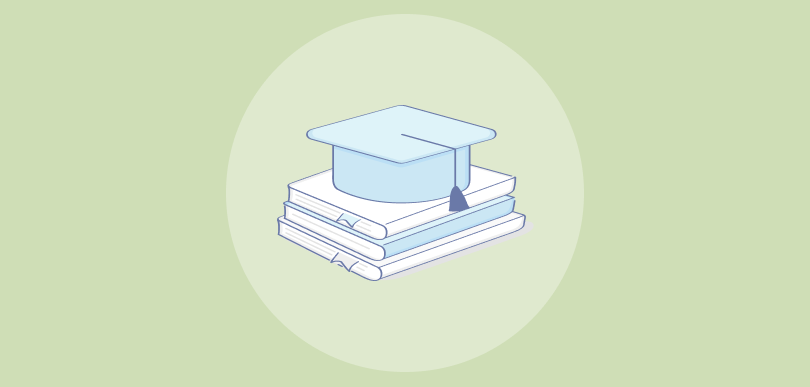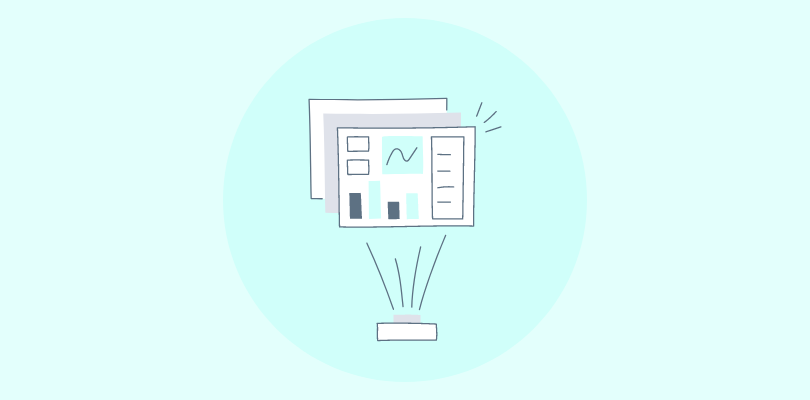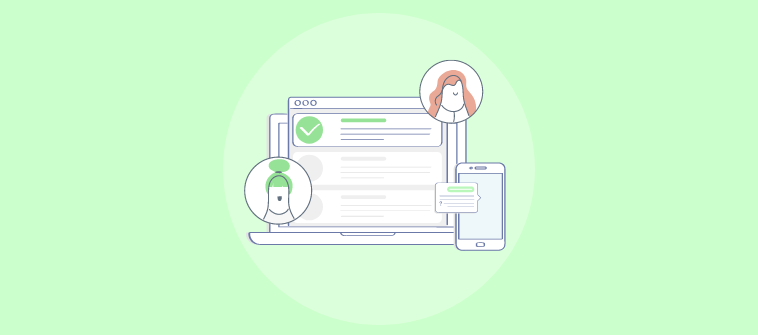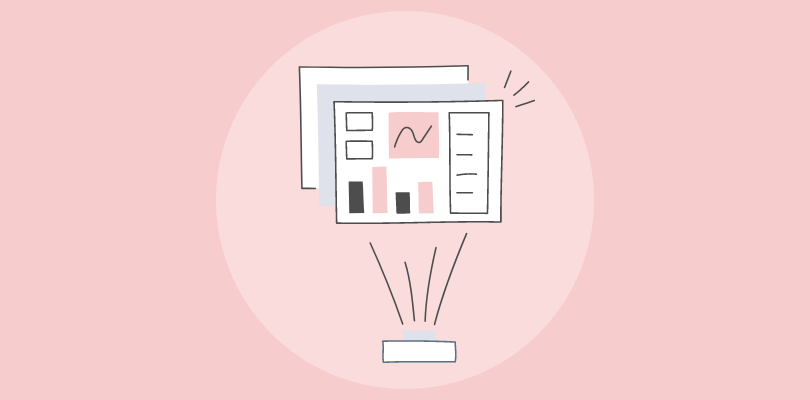Have you ever felt like you’re juggling a million customer interactions? Emails are being sent, calls are coming in, and social media is buzzing – but where is the central hub to manage it all?
Enter the world of SaaS CRM, a revolutionary solution for businesses of all sizes.
But what is SaaS CRM, and why should you try it?
Imagine a tool that not only streamlines your customer relationship management but also offers the flexibility of cloud-based access. SaaS CRM, or Software as a Service Customer Relationship Management, is transforming how companies handle customer interactions and data.
In this detailed guide, I’ll go deep into the world of SaaS CRM, exploring its features, benefits, and reasons to invest. Whether you’re a small business or a large enterprise, this guide will reveal why SaaS CRM can benefit you.
If you’re new to CRM and want to learn more, check out this quick and informative video –
What Is SaaS CRM?
SaaS CRM (Customer Relationship Management) is a software-as-a-service model that allows businesses to manage their customer data and interactions in one central location. This type of CRM is offered by third-party providers on a subscription basis and can be accessed via the Internet.
Unlike traditional on-premise CRM solutions, SaaS CRM systems are generally more user-friendly and affordable, making them a popular choice for small and medium-sized businesses.
SaaS CRMs offer many features, including contact management, lead tracking, sales automation, and marketing automation. Additionally, most SaaS CRMs provide customer support and integration with other business applications.
Read more: Understanding CRM Technology & Its Benefits From 3 Perspectives
Who Needs a SaaS CRM?
Offered by third-party providers on a subscription basis, SaaS CRMs are accessible via the Internet and are typically more user-friendly and affordable than traditional on-premise CRM solutions.
Here’s who can benefit from using a SaaS CRM:
1. Small and Medium-Sized Businesses
SaaS CRMs are designed to be intuitive and easy to navigate, making them ideal for businesses without extensive IT resources. The subscription-based model allows small and medium-sized businesses to access powerful CRM features without significant upfront investment in hardware and software.
Read more: Benefits of CRM: Why CRM Is Important for Your Business
2. Sales Teams
Sales teams can effectively track and manage leads from initial contact through to closing the deal. Automated workflows and processes help sales teams focus on selling rather than administrative tasks, improving efficiency and productivity.
Watch this quick video to discover how CRM can supercharge your sales efforts:
3. Marketing Departments
Features such as email marketing, social media integration, and campaign management help marketing teams reach their target audience more effectively. SaaS CRMs provide analytics and reporting tools that allow marketing teams to measure the success of their campaigns and make data-driven decisions.
4. Customer Support Teams
All customer interactions and data are stored in one place, making it easier for support teams to provide timely and accurate assistance. SaaS CRMs often integrate with other business applications, such as helpdesk software, to optimize customer support processes.
5. Growing Businesses
SaaS CRMs can grow with your business, offering scalable solutions that can handle increasing amounts of customer data and interactions. With cloud-based access, employees can access the CRM from anywhere, making it a versatile tool for remote and hybrid work environments.
6. Freelancers and Solopreneurs
Freelancers and solopreneurs can use SaaS CRMs to organize their personal client lists, schedules, and project timelines. They can automate repetitive tasks such as follow-up emails and appointment reminders, allowing more time to focus on core activities.
What Are the Benefits of SaaS CRM?
SaaS CRM offers a range of advantages that can transform how you manage customer interactions and data. Let’s explore the key benefits of adopting a SaaS CRM and how it can help streamline your operations –
1. Centralize Your Sales
With an all-in-one SaaS CRM solution, you can handle every aspect of your sales process in one place.
One of the standout features is contact management, allowing you to access your client’s entire profile in a single location. This makes it easy to track interactions with leads, monitor their progress, and understand their current position in the sales cycle.
You can also see where your leads are coming from in order to personalize communication. This up-to-date information enables you to take timely actions and keep your team members informed, ensuring a cohesive and efficient sales strategy.
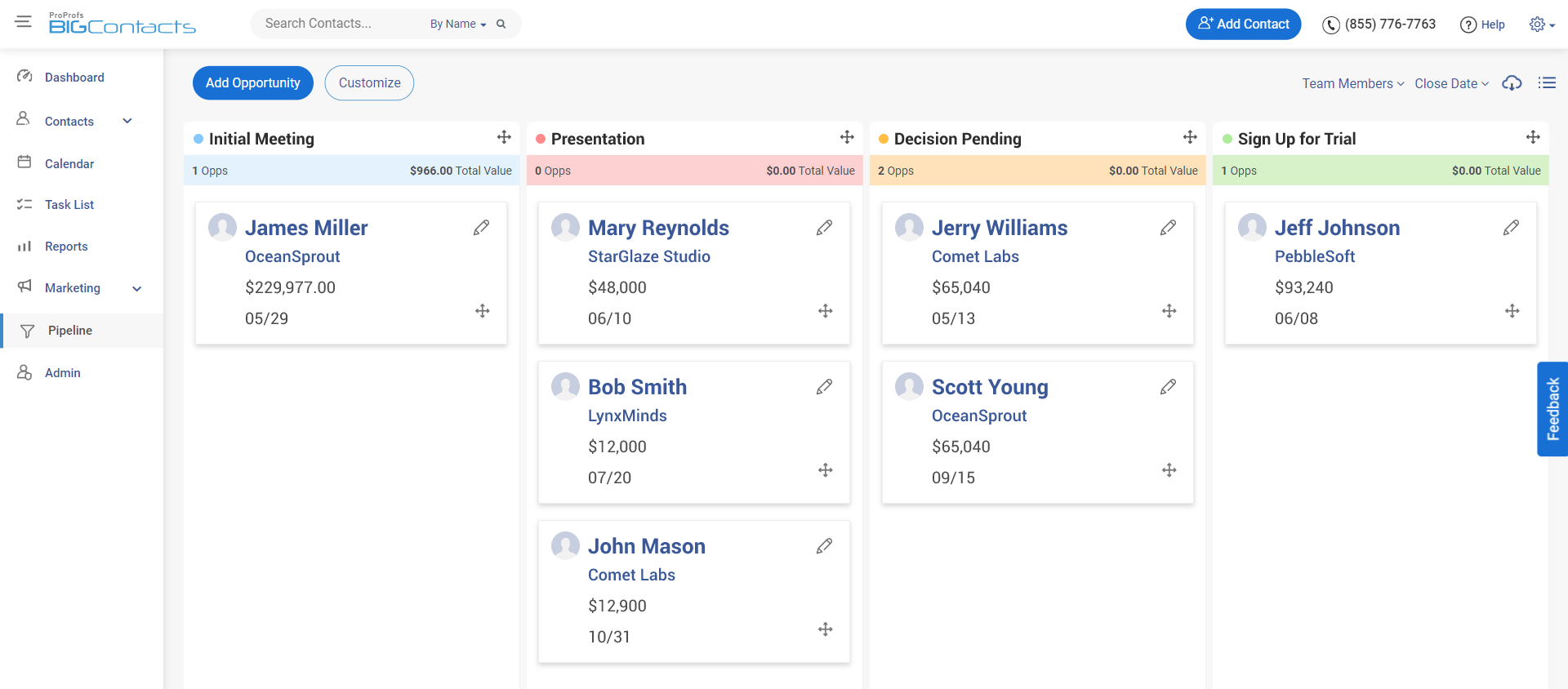
2. Build Stronger Client Relationships
A client is more than just a potential source of revenue for a company. Treating them well ensures they will consistently return to you. Therefore, your primary priority should always be to improve communication and foster deeper relationships with your clients.
SaaS CRM can assist in making sure you always follow up on your commitments and keep your word in a way that fosters trust. Whether it’s through an email or a phone call, you can be there for your prospects when they need you.
The action-focused features provided by SaaS CRM allow you to quickly follow up with the best solution for your lead, ensuring you maintain strong, trust-based relationships with your clients.
3. Improve Customer Retention
The sale doesn’t end when the contract is signed. In fact, getting a new customer costs five times as much as keeping an existing one. Maintaining a strong relationship with your current clients, who have already shown interest in your products or services, is crucial.
With a SaaS CRM, you can focus on pleasing the customer even after you’ve entered into a contract with them. This makes cross-selling and upselling opportunities easier to convert.
By using a SaaS CRM, you can ensure that your customers remain satisfied and loyal, leading to long-term success for your business.
Read more: Customer Lifecycle Management Through CRM [All In One]
4. Identify Gaps in Your Sales Process
It’s crucial for sales managers and decision-makers to monitor the development and workflow of their teams. Sales pipelines, customizable reporting, and performance analysis all aid in determining your strengths and weaknesses.
To effectively measure gaps in your sales funnels, conversions, and overall activity, you can utilize a CRM that offers comprehensive tools to assist you. Instead of poring over truckloads of data that might not make sense, a CRM provides clear insights and actionable data.
For a detailed understanding, you can refer to a reliable SaaS CRM guide to optimize your sales process and identify areas for improvement.
5. Align Your Sales and Marketing Teams
Not only does the sales team need a SaaS CRM, but it is also the ideal platform for aligning sales and marketing efforts. When sales and marketing teams communicate consistently, businesses typically see greater returns on investment.
A SaaS CRM enables this alignment by providing access to comprehensive customer data, from basic contact information to vital details about interests, professions, and industries.
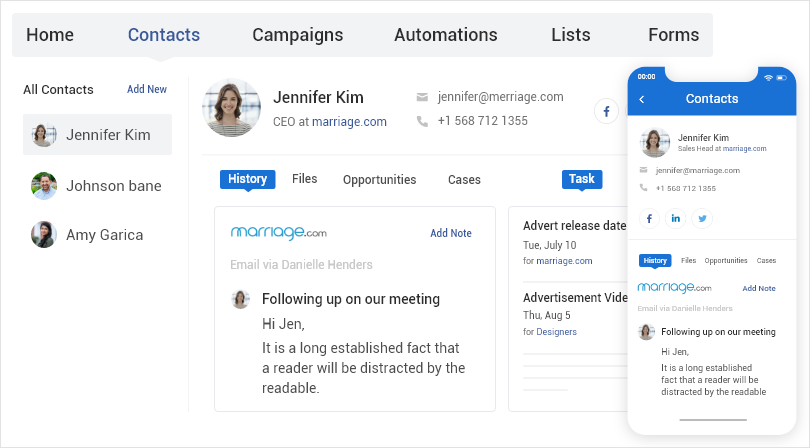
With this data, marketing teams can craft more targeted campaigns that resonate with potential customers, while sales teams can tailor their approach based on insights gained from marketing activities. This synergy between sales and marketing leads to more informed decisions, better customer engagement, and, ultimately, improved business outcomes.
6. Increase Productivity
A SaaS CRM significantly boosts productivity by reducing labor-intensive manual tasks and enhancing workflow management. With a SaaS CRM, there’s no need to manually enter data or perform administrative activities like filling out forms, pasting emails, or creating reports from scratch.
The entire sales team can quickly access crucial documents, data, email templates, and reports. This easy access allows sales representatives to act swiftly and focus more on selling rather than getting bogged down by administrative tasks.
Read More: Top 7 Ways CRM Software Helps You Manage Tasks & Workflow
7. Simplify Your Work With App Integrations
Managing multiple apps for email, calendar, invoicing, and customer service can be overwhelming and time-consuming. However, with a SaaS CRM, you can access all these applications in one central location, simplifying your workflow.
Integrating your CRM with other systems enhances your sales process by automating emails and invoices, maintaining a comprehensive customer purchase database, and providing access to all new communications in one place. For instance, a b2b SaaS revenue recognition software can easily integrate with this and can access revenue data.
This integration helps you gain a deeper understanding of your customers’ data, allowing you to offer more informed and personalized customer service.
You can opt for a powerful CRM tool like BIGContacts that offers a range of integration options with leading email marketing, lead generation, customer service, and accounting software.
What Are the Features of SaaS CRM?
SaaS CRM offers a wide range of features to simplify customer relationship management and enhance business efficiency. Here are some of them:.
1. Contact Management
SaaS CRM systems offer efficient contact management features, allowing you to store and organize customer information in one central database. This includes details such as names, addresses, phone numbers, and communication history.
With easy access to this data, businesses can personalize customer interactions, improve communication, and build stronger relationships.
Additionally, contact management helps teams collaborate more effectively, ensuring that everyone has the latest information about each customer.
2. Lead Tracking
Lead tracking is essential for managing potential customers and converting them into sales. SaaS CRMs provide tools to capture, monitor, and nurture leads. Businesses can track the source of leads, their status, and their interactions with the company.
This helps sales teams prioritize their efforts, focus on the most promising leads, and increase their chances of closing deals. Automated alerts and reminders ensure that no lead falls through the cracks.
Read more: A Guide to Lead Tracking: How It Benefits Your Business
3. Sales Pipeline Management
Sales pipeline management is a key feature of SaaS CRMs, allowing businesses to visualize and manage their sales process from start to finish. This feature enables sales teams to track deals’ progress at each stage of the pipeline, identify bottlenecks, and forecast future sales.
With a clear view of the sales pipeline, managers can allocate resources more effectively, set realistic targets, and implement strategies to move deals forward.
Automated updates and real-time data ensure that everyone on the team is informed and aligned, leading to more efficient sales processes and higher conversion rates.
If you want to learn more about how to manage a sales pipeline efficiently, check out this quick video –
4. Email Marketing
Email marketing is an essential feature of SaaS CRMs, allowing businesses to create, manage, and track email campaigns directly from the CRM platform.
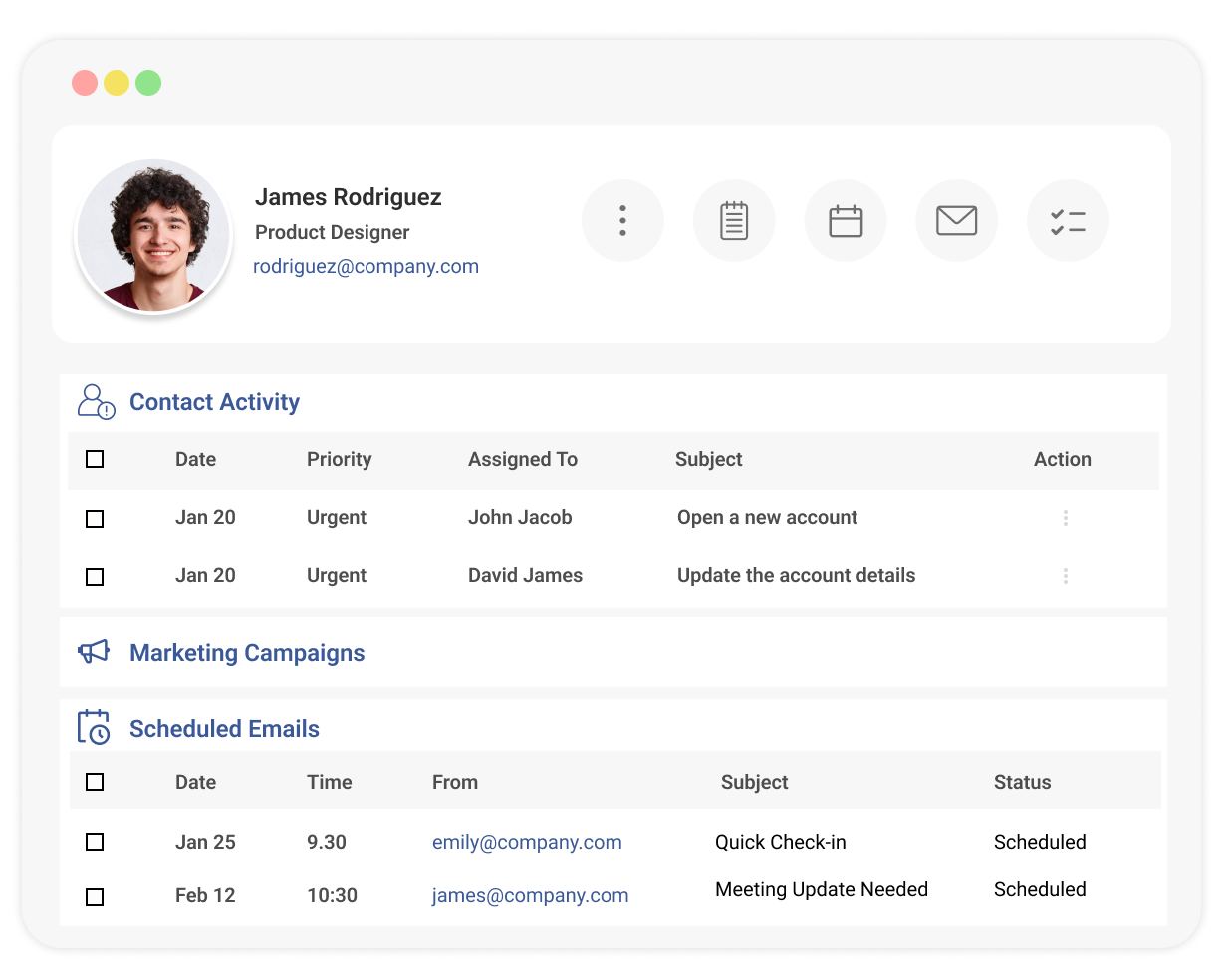
These tools enable businesses to send personalized and targeted emails to different audience segments, increasing engagement and conversion rates.
Features often include email templates, scheduling, automation of follow-up emails, and detailed analytics to measure the success of each campaign.
By integrating email marketing within the CRM, businesses can maintain consistent communication with their customers and leads, nurturing relationships and driving sales. This centralized approach ensures that all marketing efforts are aligned and easily manageable.
5. Marketing Automation
Marketing automation tools in SaaS CRMs help businesses execute targeted marketing campaigns on channels such as email and social media with ease.
Automated marketing workflows allow businesses to send personalized messages to specific audience segments, increasing engagement and conversion rates.
Marketing automation also provides detailed analytics, enabling businesses to track the performance of their campaigns and make data-driven decisions to improve future efforts.
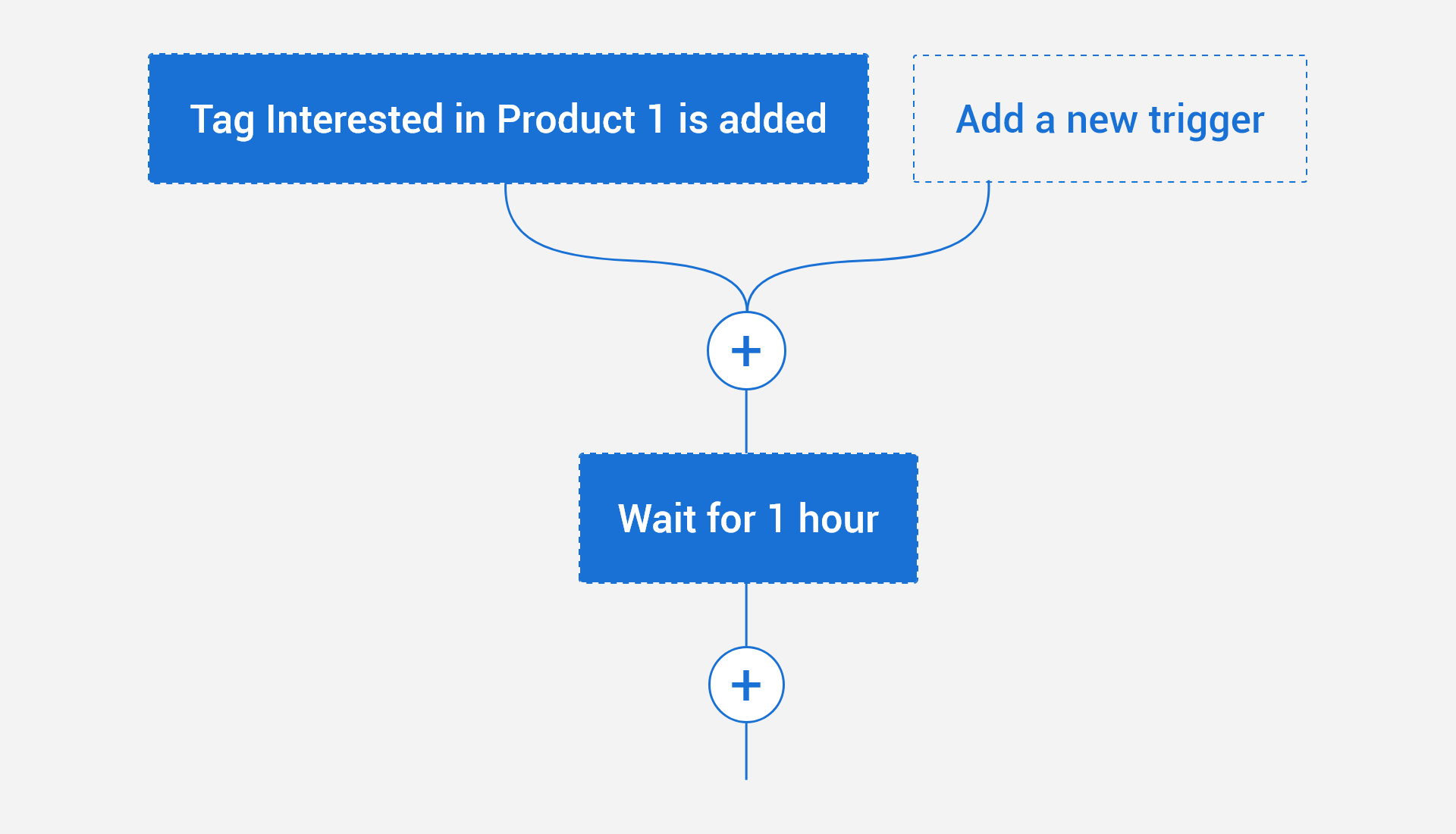
Read more: Marketing Automation: Tips to Drive Successful Campaigns
6. Calendar & Task Management
Calendar and task management features in SaaS CRMs help businesses stay organized and on schedule. These tools allow users to create and manage tasks, set deadlines, and schedule appointments directly within the CRM.
Integrated calendars with CRM ensure that team members are aware of upcoming meetings and important dates, reducing the risk of missed appointments. Task management features enable users to assign tasks to team members, track progress, and set priorities.
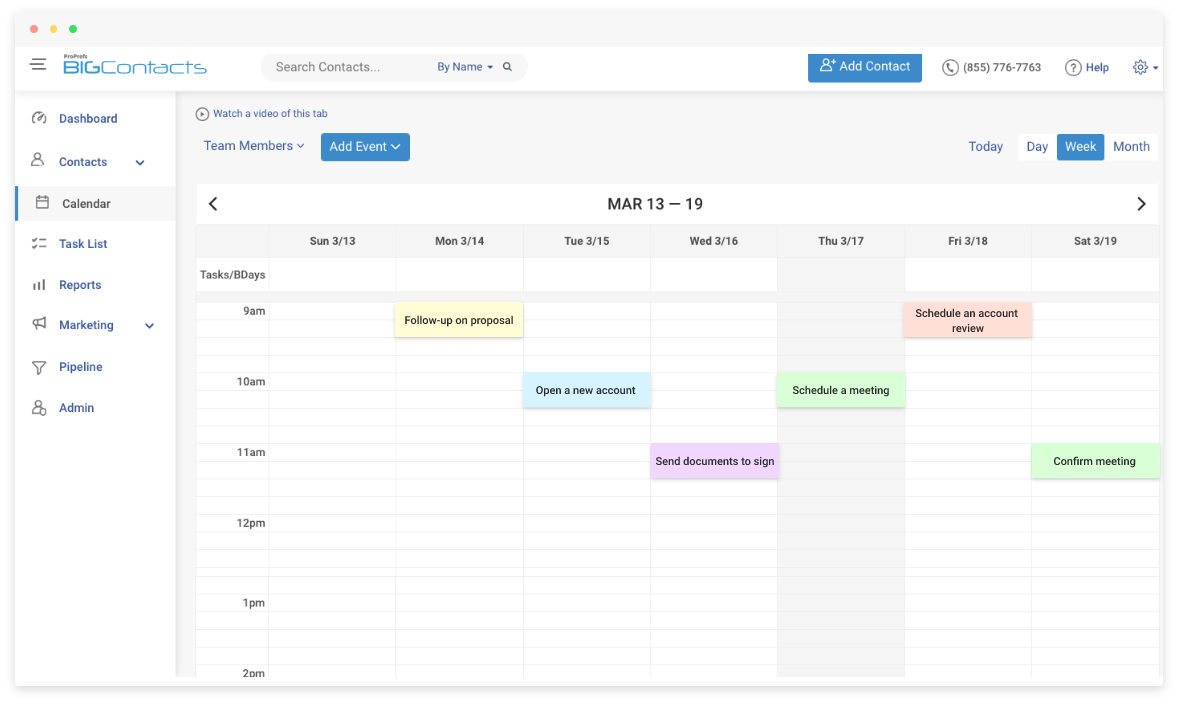
This improves collaboration and ensures that everyone is aligned on what needs to be done, enhancing overall productivity and efficiency. Automated reminders and notifications help keep everyone on track and ensure that critical tasks are completed on time.
7. Integration with Other Tools
SaaS CRMs are designed to integrate seamlessly with other business applications, such as email platforms, accounting software, and project management tools.
These CRM integrations enable businesses to streamline their workflows and ensure that all their systems work together efficiently.
For example, integrating with an email platform allows for automated email campaigns, while integration with accounting software simplifies invoicing and financial tracking. This interconnectedness enhances overall business operations and improves data accuracy.
8. Customer Support
SaaS CRMs often include customer support features to enhance the quality of service provided to customers. This can include ticketing systems, live chat, and knowledge bases.
You can respond more quickly and effectively to customer needs by centralizing all customer inquiries and support interactions.
Integration with other business applications, such as helpdesk software, further improves support processes, leading to higher customer satisfaction and loyalty.
Curious about how a helpdesk can boost your sales? Check out this quick video to find out!
9. Reporting and Analytics
Reporting and analytics features provide valuable insights into business performance. SaaS CRMs offer customizable reports and dashboards that display key metrics, such as sales performance, lead conversion rates, and customer satisfaction.
These insights help businesses identify trends, measure the effectiveness of their strategies, and make informed decisions. With real-time data, managers can quickly respond to changing conditions and optimize their operations.
10. Mobile Access
Mobile access is a crucial feature of SaaS CRM. It allows users to access their CRM data from anywhere, at any time. This is particularly important for sales teams and field representatives who need to stay connected while on the go.
Mobile apps provide the same functionality as the desktop version, enabling users to manage contacts, track leads, and update information from their smartphones or tablets. This flexibility improves productivity and ensures that important tasks are not delayed.
Types of SaaS CRM
Choosing the right and best SaaS CRM for your business is crucial for managing customer relationships effectively. Two main types of SaaS CRM systems are commonly used: Cloud CRM and On-Premise CRM. Understanding these types will help you make an informed decision about which CRM system is best suited for your organization.
Cloud-Based CRM
Cloud CRM systems are hosted on the Internet, allowing users to access them from anywhere with an internet connection. This makes them perfect for remote teams and businesses with multiple locations.
These systems are highly scalable, accommodating your business growth without significant additional costs.
One key benefit of cloud CRMs is that the provider manages software updates and maintenance, ensuring you always have the latest features and security enhancements without any downtime.
They are also cost-effective, typically offered on a subscription basis, eliminating the need for expensive hardware and reducing upfront costs. Additionally, reputable cloud CRM providers offer robust data security measures to protect your information.
Read more: Cloud CRM: What It Is & How It Can Drive Growth
On-Premise CRM
On-premise CRM systems are installed and run on a company’s own servers. This setup allows you to have full control over your CRM data and software and helps in customization to meet your specific business needs.
However, on-premise CRMs require a significant upfront investment in hardware and software, as well as ongoing maintenance and updates, which the company’s IT team must manage.
While they offer enhanced control and security, on-premise CRMs can be less flexible than cloud solutions, as they don’t easily support remote access.
They are often favored by larger organizations with dedicated IT resources and specific compliance or security requirements that necessitate on-site data storage.
What Is the Difference Between On-Premise CRM and SaaS CRM?
Choosing the right CRM solution is crucial for your business, and understanding the differences between on-premise CRM and SaaS CRM can help you make an informed decision.
On-premise CRM is installed on your company’s own servers and managed by your IT team, while SaaS CRM is hosted on the vendor’s servers and accessed via the Internet. Each option has its own set of advantages and challenges.
Here are the key differences between on-premise CRM and SaaS CRM
| Feature | On-Premise CRM | SaaS CRM |
|---|---|---|
| Deployment | Installed on the company’s own servers | Hosted on the vendor’s servers, accessed via the internet |
| Cost | High upfront costs for hardware and software | Lower upfront costs, typically subscription-based |
| Maintenance | Managed by the company’s IT team | Managed by the service provider |
| Scalability | Limited by physical hardware | Easily scalable based on needs |
| Updates | Requires manual updates | Automatic updates provided by the vendor |
| Accessibility | Limited to on-site or VPN access | Accessible from anywhere with internet access |
| Customization | Highly customizable but complex | Generally easier but may have limitations |
| Security | Managed internally, offering higher control | Managed by the vendor, requiring trust in their security measures |
| Implementation Time | Longer, involving setup and configuration | Quicker, as it’s ready to use out of the box |
| Data Control | Full control over data | Vendor controls the data storage and management |
How to Grow Sales With SaaS CRM
Investing in SaaS CRM can significantly boost your sales by streamlining processes and enhancing customer interactions. Here’s how:
- Centralized Customer Data: With all customer information in one place, your sales team can easily access and update customer profiles, ensuring they have the latest data to make informed decisions.
- Automated Sales Processes: SaaS CRM systems automate repetitive tasks such as follow-up emails and scheduling, allowing your sales team to focus on closing deals rather than administrative work.
- Improved Lead Management: Track and manage leads more effectively with tools that help you prioritize prospects and monitor their progress through the sales funnel, ensuring no opportunity is missed.
- Enhanced Communication: Integrated communication tools allow your sales team to interact with customers via email, phone, or social media from within the CRM, ensuring seamless and efficient communication.
- Data-Driven Insights: Advanced analytics and reporting features provide valuable insights into sales performance, helping you identify trends, measure success, and make data-driven decisions to optimize your sales strategy.
By leveraging the power of SaaS CRM, you can streamline your sales processes, improve customer relationships, and ultimately drive growth for your business.
Learn More About Saas CRM
What is Software as a Service (SaaS)?
Software as a Service (SaaS) is a cloud-based software delivery model. Instead of installing software on your computer, you access it online through a subscription. This means you can use powerful tools and applications from anywhere with an internet connection without worrying about updates or maintenance. It’s convenient, cost-effective, and perfect for modern businesses.
What is the best CRM for SaaS businesses?
In my experience, BIGContacts CRM is the best for SaaS businesses. It offers powerful features like contact management, sales automation, and detailed analytics. Plus, it has a free plan for up to 100 contacts. It is user-friendly and scalable, making it perfect for growing SaaS companies. Its integration capabilities with other tools also streamline operations and boost efficiency.
What is the minimum cost of SaaS CRM?
The minimum cost of a SaaS CRM typically starts around $9 to $15 per user per month. In my experience, this entry-level pricing usually includes basic features like contact management and email integration. The cost can increase as you add more users or need advanced features.
What is the difference between in-house CRM and SaaS CRM?
The main difference between in-house CRM and SaaS CRM lies in their hosting and maintenance. In-house CRM is hosted on your company’s servers and managed by your IT team, offering more control but higher costs. SaaS CRM, on the other hand, is cloud-based, managed by the provider, and is more affordable and accessible from anywhere.
Why choose SaaS CRM over in-house CRM?
Choosing SaaS CRM over in-house CRM offers greater flexibility, as you can access it anywhere with an internet connection. It’s more cost-effective, with no need for expensive hardware or maintenance. Plus, the provider handles updates and security, saving you time and ensuring your system is always up-to-date.
FREE. All Features. FOREVER!
Try our Forever FREE account with all premium features!



